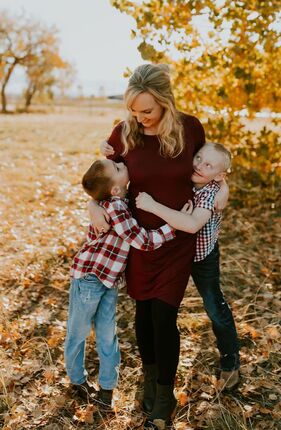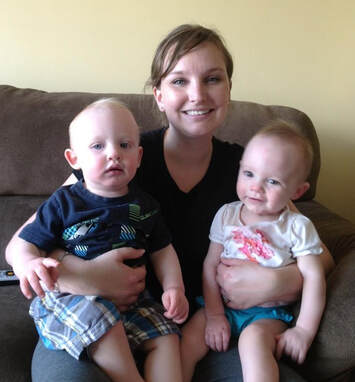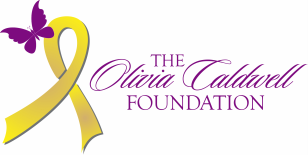 I have written often about the struggles that come with being a grieving mother. The loss of my daughter can be all consuming, especially during this busy season that has included the anniversary of her passing, the holidays, and eventually yet another birthday where Olivia is missing. But what I don’t talk about as often is the incredible toll the loss of Olivia has taken on her brothers. Their experiences are vastly different, and yet they both struggle with the loss of their sister in their own unique way. My oldest son, Wyatt, was Olivia’s twin brother. He knew his sister more intimately than any of us did because of that bond that started very literally while they grew together in my womb. And because of that (and the tremendous loss he suffered when she died at their young age of 20 months) he struggles a lot to this day with living a happy life in spite of missing his other half. My younger son, Landon, on the other hand, was born about a year after Olivia died, so he never got to meet his big sister. Despite being the spitting image of his sissy, he feels like he got robbed of ever knowing her, and that breaks his heart. He has a lot of questions about what she was like and talks often about how sad he is that he has only ever seen pictures of her. Their grief is different and yet both are completely valid and very real. They both suffered a huge loss and they will both have to navigate through life with the undercurrents of that grief shaping how they live. I hope as their mother that I am teaching my boys how to live a joyful life in spite of the tremendous loss we all suffered. I tell my boys often that it is possible to miss their sister terribly and still live a really happy life. I also remind them that Olivia would want them to live happily and to honor her in the way they love one another. It is equally important to me that my boys know it is okay to be sad and to miss their sister. There is no shame in the days when the tears won’t stay away and their little hearts ache for Olivia. My husband and I spend time helping the boys to know how to grieve in a way that won’t be harmful to them in the long run. We tell them to let the tears fall, talk about what’s on their mind, and then do something to help their heart feel better. That could be spending time with their family, taking a hot bath, seeking out a friend, or just getting a big hug from their dad or I. I think that’s good advice for all of us and something that I practice in my own walk with grieving my daughter. I used to spend so much time bottling up my own feelings because I was afraid I wouldn’t be able to get back up if I ever let it take me over. But now when I feel the grief coming, I embrace it. I let my tears fall. I hole up for a while when I need to. And then I do something to pull myself out of it. What have you done to help yourself or your children grapple with a big loss in your family? Please feel free to share any tips or tricks you have learned in the comment section or send them to me via email - [email protected].
1 Comment
November is here and many of us are already starting to think about the holidays - will there be travel involved this Thanksgiving? How many do we need to cook for? How will we afford it this year? Will we even be home to celebrate? There are so many questions we might be asking ourselves already depending on our circumstances. So I’d like to share a little bit about the art and science of gratitude, since that’s what the first Thanksgiving was all about! Why art and science? Some may say that gratitude is more of a mindfulness tactic or a religious affair and it really has nothing to do with science. And some on the other end of the spectrum have argued that it must be science because the act of gratitude can be traced through the brain and its effects seen throughout the body. Well, I’m no scientist and hold tightly to my Christian faith, so in my humble opinion I think we can have the best of both worlds however you choose to look at it and all sit at the table together this Thanksgiving (and beyond)! Gratitude - the Art Gratefulness or gratitude is something done within relationships. We can be grateful for an act of kindness someone did for us and that thankful feeling is directed towards the kind person. Oftentimes this is reciprocated with an act with the feeling like saying, “Thank you!”, writing a note, making a social media post, giving a hug, however that feeling moves you to express your gratitude toward the other person. Depending on your gauge of spirituality, this can also easily transfer over to God or your higher power. Sometimes people are overwhelmed with a sense of gratitude for a beautiful day or a closer parking spot or a feeling of comfort given in the midst of trial. However this looks, we’re going to try to find ways to take the art to a level that also affects our physical well-being! Gratitude - the Science Here’s something for a little self-reflection: “People generally do not make efforts to actively infuse their daily experiences with greater emotional quality….Although most people definitively claim that they love, care, appreciate, it might shock many to realize the large degree to which they are actually experienced in their feeling world. In the absence of conscious efforts to engage, build, and sustain positive perceptions and emotions, we all too automatically fall prey to feelings such as irritation, anxiety, worry, frustration, self-doubt and blame.” (Rollin McCraty, “The Grateful Heart,” The Psychology of Gratitude, 2004) Science has proven that people who tend to be grateful experience fewer aches and pains, improves sleep, reduces stress, and in general causes a “healthier” life. Mental health is stronger with greater ability to overcome traumas. There are more opportunities for friendships and overall better self esteem - doesn’t this sound pretty awesome? (For a quick taste of what this could look like and the studies, check out this link.) I’m feeling grateful just thinking about all of the benefits that come from being grateful! When things are difficult, it can be hard to find those things to be grateful for - those people to be grateful to. So what can we do to help relieve some of the holiday stress and tap into these benefits? Here are a few easy steps to add to your daily life:
 Parenting is wonderful and exhausting all at the same time - which is a statement any parent would agree with. Between the hustle and bustle of school, sports, homework, and trying to stay on top of the never ending piles of laundry, parenting is a daily marathon that is sure to test your patience, while also stretching your heart to new limits of love. Having a child with a complex medical condition only makes that parenting marathon more difficult. You have all of the normal stressors of parenthood, while also adding on your child’s special needs that require even more careful management. This medical super marathon of parenting is something I have experienced with two of my own children, and it is anything but easy! When my daughter Olivia was 4 months old she was diagnosed with brain cancer. Her journey required a lot of special care, including learning how to access her mediport and give her IV fluids at home when needed. I also had to give her liquid feeds via her feeding tube, keep track of a whole slew of medications, give her steroid injections, balance doctors appointments with a whole host of therapists to help her developmental skills, and more. Caring for her was a full time job and one I would do all over again in a heartbeat! The day after Olivia’s funeral her twin brother, Wyatt, was diagnosed with Type 1 Diabetes. His own diagnosis has presented a new medical super marathon all its own! For him I’ve learned the delicate (but time consuming) balance of making sure he never runs out of his medications or supplies. I have to make sure I don’t order too soon for insurance to cover the cost but also not order too late that he runs out of supplies. I’m also constantly changing his insulin levels on his pump, keeping track of when his last pod was inserted or when his CGM sensor will need to be changed. There’s also doctors appointments to keep track of and constant communication with anyone else who takes care of him to make sure his needs are met and his diabetes is cared for properly even when we aren’t in the same place. Thank God for technology to help with our communication, including a CGM that sends information about his glucose levels to my cell phone. These experiences with my children have taught me a lot about advocating for my children while trying to maintain my own sanity. Here are a few tips I would love to share:
I hope this advice will help you in some way if you are navigating through life with a child who has a chronic or complex medical condition! If you have any other tips you would like to share, please reach out! We would love to hear from you. You can email me directly at [email protected].
|
AuthorWrite something about yourself. No need to be fancy, just an overview. Archives
December 2022
Categories
All
|




 RSS Feed
RSS Feed



